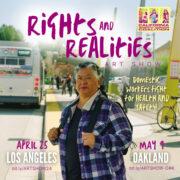IN 2006, Filipino nurses at the Delano Regional Medical Center in Delano, California were called to a meeting and told they were not allowed to use their native language at “any time in the hospital.” During the meeting, the hospital’s former chief executive said he would install surveillance cameras in nursing stations, and that whoever is caught would be subject to suspension or termination.
The nurses said there were times when they spoke English, but because of their accent and diction, the hospital officials thought they were speaking something else. Although the hospital employed several bilingual employees speaking Spanish, Hindi, Bengali and other languages, managers targeted only the Filipinos. Supervisors and other staff were encouraged to “act as vigilantes” and report on the Filipino nurses.
“They were always telling us, ‘Ssshhh. English only. English only. I felt embarrassed, ashamed,” said Elnora Cayme, who worked at the hospital for more than 27 years. “We were being followed by housekeepers and security guards. I asked the guard why he did that and he said, ‘We were told to watch you and report you.’” The speak-English only policy created such a hostile work environment that one worker even sprayed air freshener on a Filipino employee’s lunch to register her “hatred for Filipino food.”
Feeling harassed and discriminated, 100 nurses signed a petition protesting the policy and sent it to management. But the policy was not changed.
In 2010, sixty-nine Filipino nurses filed a lawsuit against the hospital, alleging that its language policy violated the Civil Rights Act. On September 17, 2012, lawyers of the Equal Employment Opportunities Commission (EEOC) and the Asian Pacific American Legal Center, who represented the nurses, announced that Delano Regional Medical Center has agreed to pay $975,000 to the 69 nurses in what could be the largest settlement relating to language restriction in US healthcare industry.
Hospital officials insisted they did nothing wrong and settled the lawsuit only because it made financial sense. Under the terms of the settlement, however, the hospital was ordered to conduct anti-discrimination training and hire a monitor to track workplace conduct.
Discrimination in the workplace is prohibited under Title VII of the Civil Rights Act of 1964. The particular discrimination in the English-only policy against the Filipino nurses fall under Title VII of the Civil Rights Act, of 1964 which prohibits employment discrimination based on race, color, religion, sex or national origin. Title VII prohibits not only intentional discrimination, but also practices that have the effect of discriminating against individuals because of their race, color, national origin, religion, or sex.
Under the law’s National Origin Discrimination provision, it is illegal to discriminate against an individual because of birthplace, ancestry, culture, or linguistic characteristics common to a specific ethnic group.
A rule that restricts employees to speak only English on the job is unlawful if it were adopted with the intent to discriminate on the basis of national origin. The illegality may be evident if the employer prohibits one or some, but not all the foreign languages spoken at work.
An employer, however, can show that the language requirement is necessary in light of the specific needs of its business. Hence, an English policy may be allowed if it is implemented for non-discriminatory reasons. For instance, an employer can justify its policy out of necessity to operate safely or efficiently. According to the EEOC, the following business situations may justify an English-only rule:
For communications with customers, coworkers, or supervisors who only speak English
In emergencies or other situations in which workers must speak a common language to promote safety
For cooperative work assignments in which the English-only rule is needed to promote efficiency
To enable a supervisor who only speaks English to monitor the performance of an employee whose job duties require communication with coworkers or customers
Similarly, under California law, it is an unlawful employment practice for an employer to enforce a policy that prohibits the use of any language unless:
1) The language restriction is justified by business necessity;
2) Employees are notified of the circumstances and time when restriction is required and the consequences of violation.
* * *
C. Joe Sayas, Jr., Esq. is an experienced trial attorney who has successfully obtained significant results, including several million dollar recoveries for consumers against insurance companies and big business. He is a member of the Million Dollar-Advocates Forum—a prestigious group of trial lawyers whose membership is limited to those who have demonstrated exceptional skill, experience and excellence in advocacy. He has been featured in the cover of Los Angeles Daily Journal’s Verdicts and Settlements for his professional accomplishments and recipient of numerous awards from community and media organizations. His litigation practice concentrates in the following areas: serious personal injuries, wrongful death, insurance claims, unfair business practices, wage and hour (overtime) litigation. You can visit his website at www.joesayas law.com or contact his office by telephone at (818) 291-0088.




